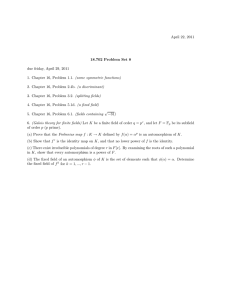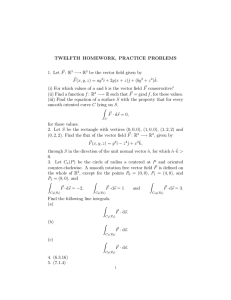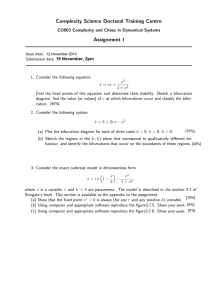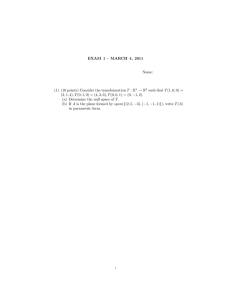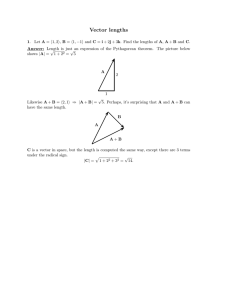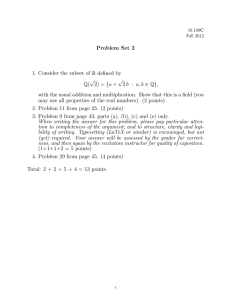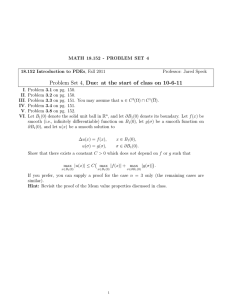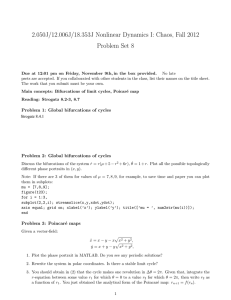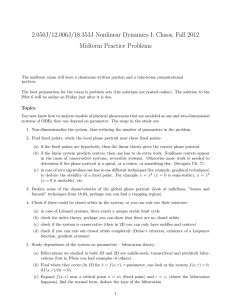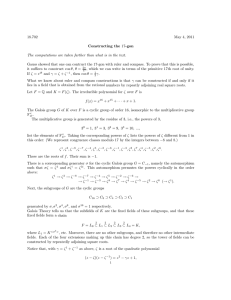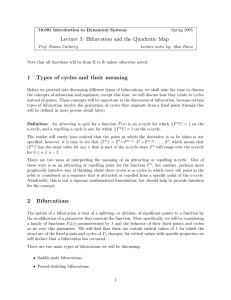Document 13575479
advertisement
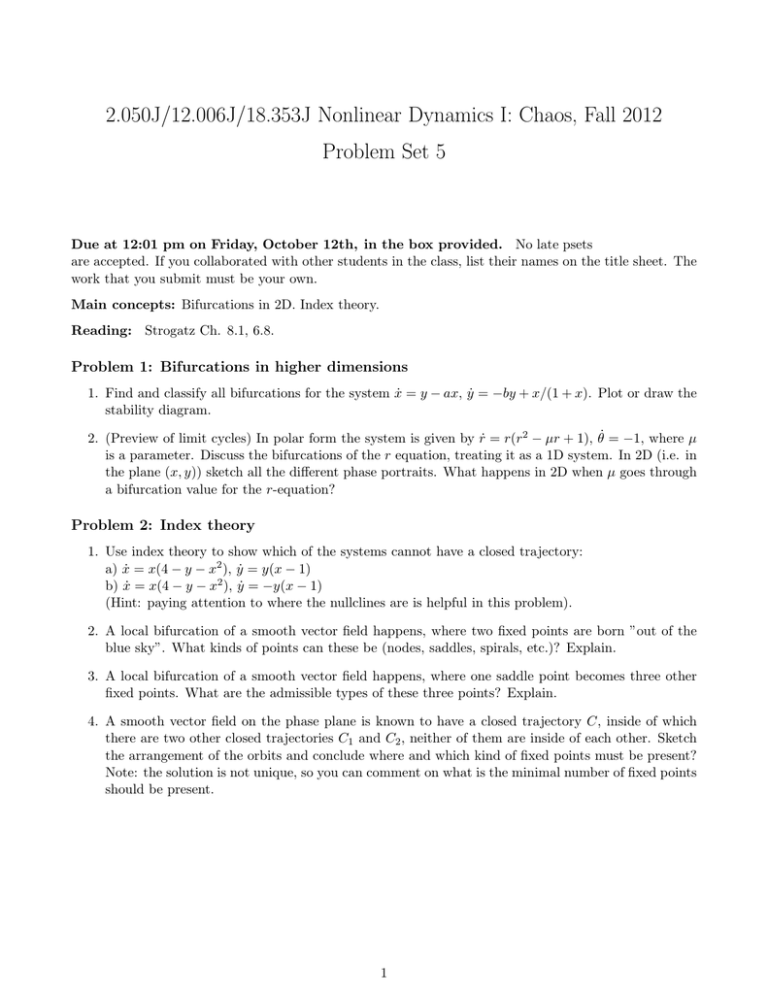
2.050J/12.006J/18.353J Nonlinear Dynamics I: Chaos, Fall 2012 Problem Set 5 Due at 12:01 pm on Friday, October 12th, in the box provided. No late psets are accepted. If you collaborated with other students in the class, list their names on the title sheet. The work that you submit must be your own. Main concepts: Bifurcations in 2D. Index theory. Reading: Strogatz Ch. 8.1, 6.8. Problem 1: Bifurcations in higher dimensions 1. Find and classify all bifurcations for the system ẋ = y − ax, ẏ = −by + x/(1 + x). Plot or draw the stability diagram. 2. (Preview of limit cycles) In polar form the system is given by ṙ = r(r2 − µr + 1), θ̇ = −1, where µ is a parameter. Discuss the bifurcations of the r equation, treating it as a 1D system. In 2D (i.e. in the plane (x, y)) sketch all the different phase portraits. What happens in 2D when µ goes through a bifurcation value for the r-equation? Problem 2: Index theory 1. Use index theory to show which of the systems cannot have a closed trajectory: a) ẋ = x(4 − y − x2 ), ẏ = y(x − 1) b) ẋ = x(4 − y − x2 ), ẏ = −y(x − 1) (Hint: paying attention to where the nullclines are is helpful in this problem). 2. A local bifurcation of a smooth vector field happens, where two fixed points are born ”out of the blue sky”. What kinds of points can these be (nodes, saddles, spirals, etc.)? Explain. 3. A local bifurcation of a smooth vector field happens, where one saddle point becomes three other fixed points. What are the admissible types of these three points? Explain. 4. A smooth vector field on the phase plane is known to have a closed trajectory C, inside of which there are two other closed trajectories C1 and C2 , neither of them are inside of each other. Sketch the arrangement of the orbits and conclude where and which kind of fixed points must be present? Note: the solution is not unique, so you can comment on what is the minimal number of fixed points should be present. 1 MIT OpenCourseWare http://ocw.mit.edu 18.353J / 2.050J / 12.006J Nonlinear Dynamics I: Chaos Fall 2012 For information about citing these materials or our Terms of Use, visit: http://ocw.mit.edu/terms.
